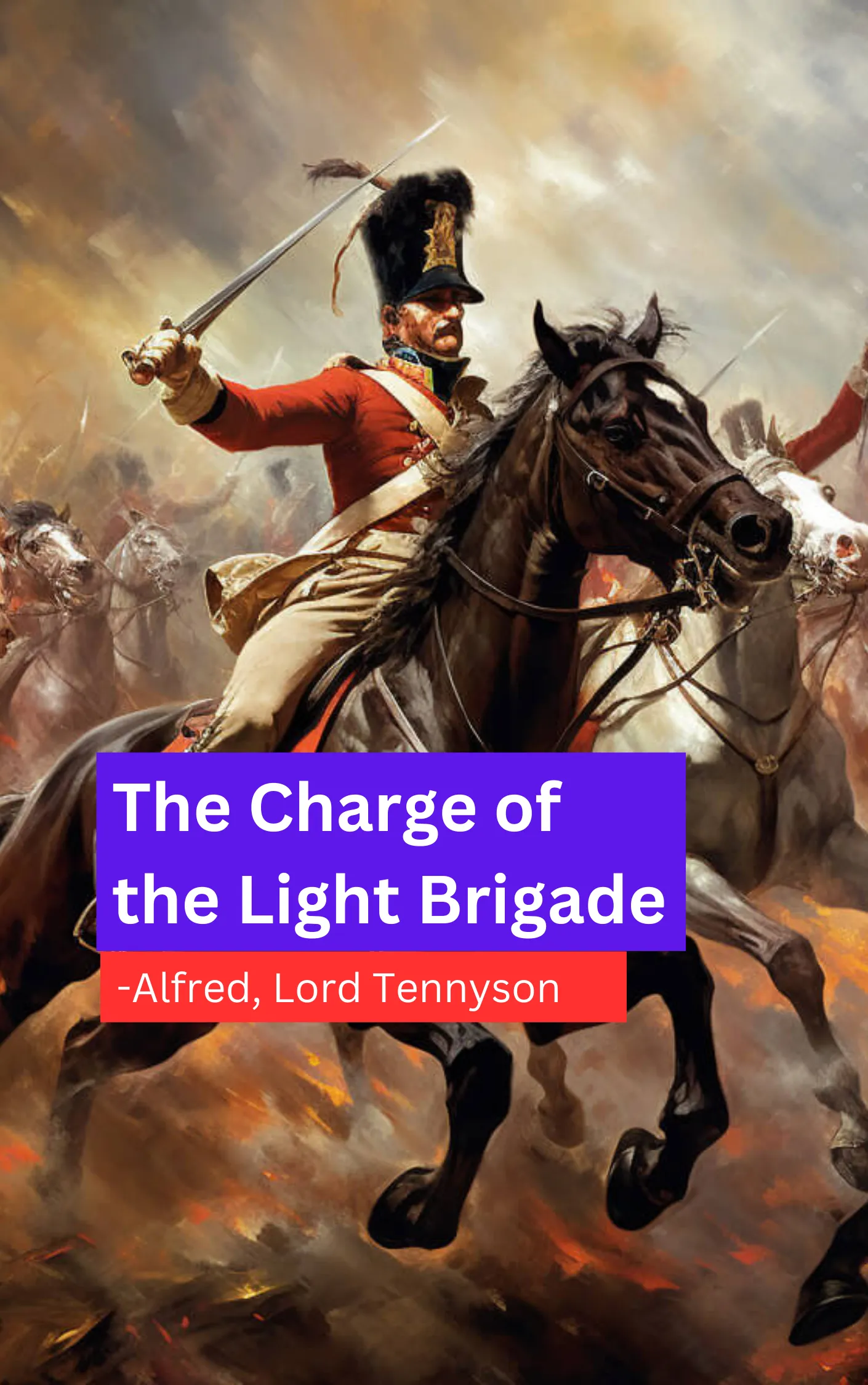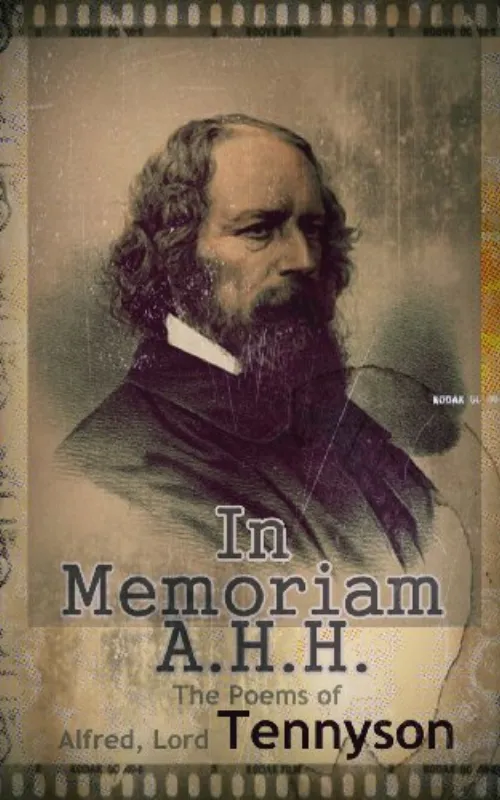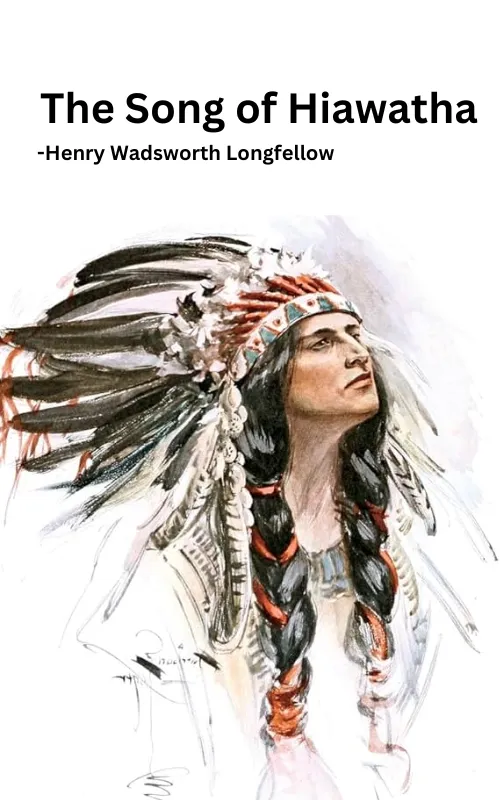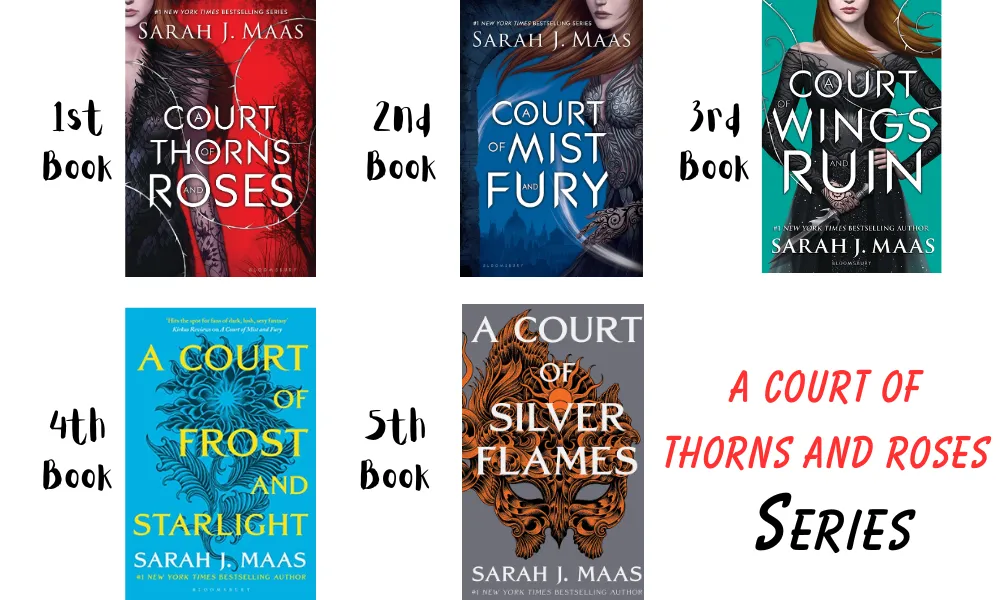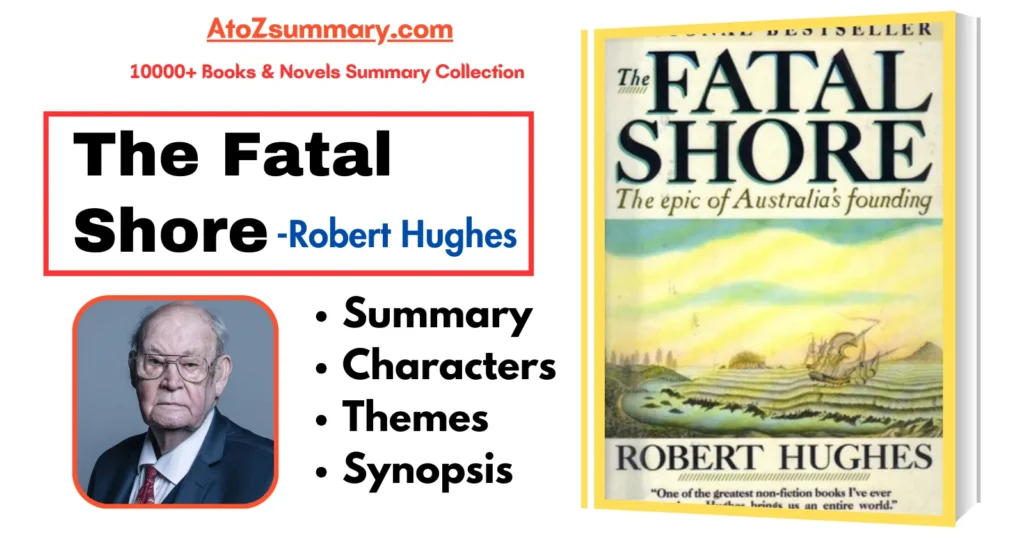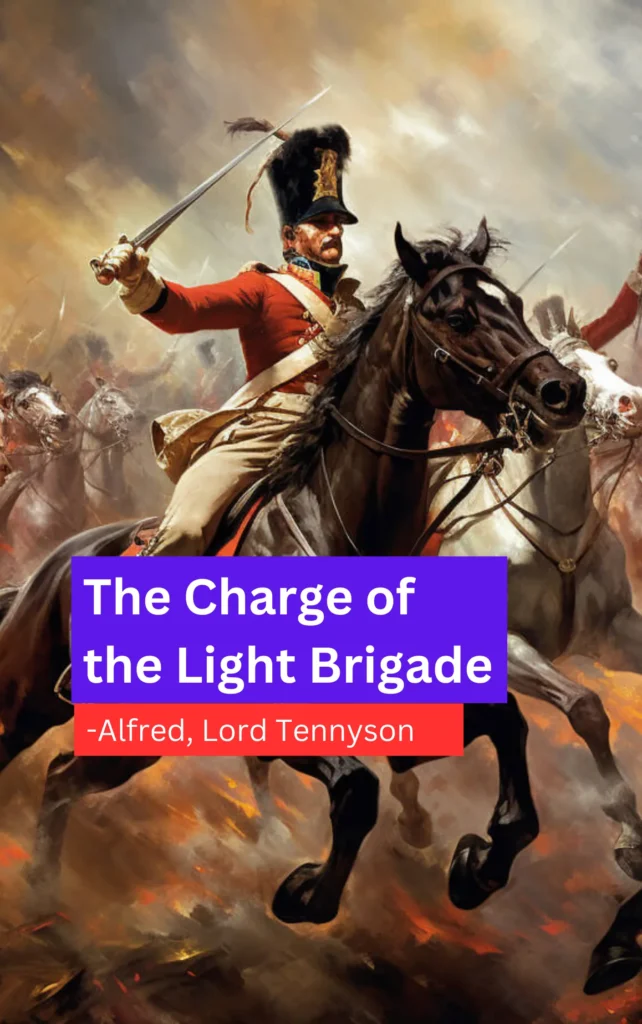
About Poem: The Charge of the Light Brigade
| Poem Title | The Charge of the Light Brigade |
| Author | Alfred, Lord Tennyson |
| Date of publication | 1854 |
| Genre | Narrative poem |
| Theme | Courage, sacrifice, and the futility of war |
| Form | Six stanzas of varying length in anapestic tetrameter with a rhyme scheme of AABBCC |
| Key literary devices | Alliteration, assonance, imagery, and metaphor |
| Famous lines | -Half a league, half a league -Half a league onward, -All in the valley of Death -Rode the six hundred. |
Themes: The Charge of the Light Brigade
The themes of the poem “The Charge of the Light Brigade” by Alfred, Lord Tennyson are:
- Courage: The poem honors the bravery of the British cavalrymen, despite the fact that their charge was ultimately futile.
- Sacrifice: The poem also honors the cavalrymen’s sacrifice, who were willing to die for their country.
- The futility of war: The poem also criticizes the British military command for its incompetence and suggests that the war was a waste of life.
The Charge of the Light Brigade Summary & Analysis
The Charge of the Light Brigade by Alfred, Lord Tennyson is a narrative poem that vividly recounts a historical event, the ill-fated Charge of the Light Brigade during the Crimean War. The poem commemorates the valor and sacrifice of the British cavalrymen, who faced daunting odds.
Here’s a stanza-by-stanza summary of the poem:
Stanza 1
Half a league, half a league, Half a league onward, All in the valley of Death Rode the six hundred.
This stanza introduces the scene of the poem: a cavalry charge of 600 British soldiers into a valley filled with Russian artillery. The speaker uses the repetition of the phrase “half a league” to emphasize the distance that the soldiers must travel and the danger that they face.
Stanza 2
“Forward, the Light Brigade! Charge for the guns!” he said: Into the valley of Death Rode the six hundred.
This stanza introduces the order to charge and the soldiers’ obedience. The speaker uses the phrase “valley of Death” again to highlight the danger of the mission.
Stanza 3
“Forward, the Light Brigade!” Was there a man dismayed? Not though the soldier knew Some one had blunder’d: Theirs not to make reply, Theirs not to reason why, Theirs but to do and die: Into the valley of Death Rode the six hundred.
This stanza highlights the soldiers’ bravery and their willingness to obey orders, even when they know that they are on a suicide mission. The speaker uses the phrase “some one had blunder’d” to suggest that the order to charge was a mistake, but the soldiers do not question it. They simply do their duty.
Stanza 4
Cannon to right of them, Cannon to left of them, Cannon in front of them Volley’d and thunder’d; Storm’d at with shot and shell, Boldly they rode and well, Into the jaws of Death, Into the mouth of Hell Rode the six hundred.
This stanza describes the intensity of the battle. The soldiers are surrounded by enemy fire, but they continue to charge forward. The speaker uses the phrase “jaws of Death” and “mouth of Hell” to convey the danger that the soldiers face.
Stanza 5
Flashed all their sabres bare, Flashed as they turned in air Sabring the gunners there, Charging an army, while All the world wonder’d: Plunged in the battery-smoke Right through the line they broke; Cossack and Russian Reel’d from the sabre-stroke Shatter’d and sunder’d. Then they rode back, but not Not the six hundred.
This stanza describes the soldiers’ attack on the Russian artillery. They charge bravely and defeat the gunners. The speaker uses the phrase “all the world wonder’d” to highlight the soldiers’ bravery and the daring nature of their attack.
Stanza 6
Cannon to right of them, Cannon to left of them, Cannon in front of them Volley’d and thunder’d; Storm’d at with shot and shell, While horse and hero fell, They that had fought so well Came through the jaws of Death, Back from the mouth of Hell, All that was left of them, Left of six hundred.
This stanza describes the soldiers’ retreat from the valley of Death. They are surrounded by enemy fire again, and many of them are killed or wounded. The speaker uses the phrase “all that was left of them” to emphasize the high cost of the victory.
Stanza 7
When can their glory fade? O the wild charge they made! All the world wonder’d. Honor the charge they made! Honor the Light Brigade, Noble six hundred!
The speaker concludes the poem by praising the courage and sacrifice of the Light Brigade. He suggests that their glory will never fade and that they should be honored for their bravery.
FAQs: The Charge of the Light Brigade
What is the true story behind The Charge of the Light Brigade?
The true story behind The Charge of the Light Brigade is that it was a disastrous military blunder during the Crimean War, in which a British cavalry brigade was ordered to attack heavily defended Russian artillery positions. The charge was a failure, with over 600 British cavalrymen killed or wounded.
What is the significance of The Charge of the Light Brigade?
The Charge of the Light Brigade is significant because it is a famous example of courage and sacrifice in a futile war.
Who was the last survivor of The Charge of the Light Brigade?
The last survivor of The Charge of the Light Brigade was Edwin Hughes, also known as Balaclava Ned.
Who was blamed for the charge of the Light Brigade?
The blame for the charge is placed on Lord Lucan, who misunderstood his orders from Lord Raglan.
What went wrong with the Light Brigade?
The Light Brigade charged into a valley of cannons because of a miscommunication of orders.
What does into the Valley of death rode the six hundred mean?
It means that the six hundred British cavalrymen rode into a very dangerous situation, knowing that they were likely to be killed or wounded.
What are the key quotes in Charge of the Light Brigade?
The key quotes in Alfred, Lord Tennyson’s poem “The Charge of the Light Brigade” are:
–“Half a league, half a league, / Half a league onward, / All in the valley of Death / Rode the six hundred.”
–“Into the jaws of Death, / Into the mouth of Hell / Rode the six hundred.”
–“When can their glory fade?”
–“Honour the charge they made!”
What is the most famous line from Charge of the Light Brigade?
The most famous line from Alfred, Lord Tennyson’s poem “The Charge of the Light Brigade” is: Half a league, half a league, / Half a league onward, / All in the valley of Death / Rode the six hundred.
What are the 4 moral values of the Charge of the Light Brigade form?
The four moral values of the Charge of the Light Brigade from the poem by Alfred, Lord Tennyson are courage, sacrifice, duty, and honor.

